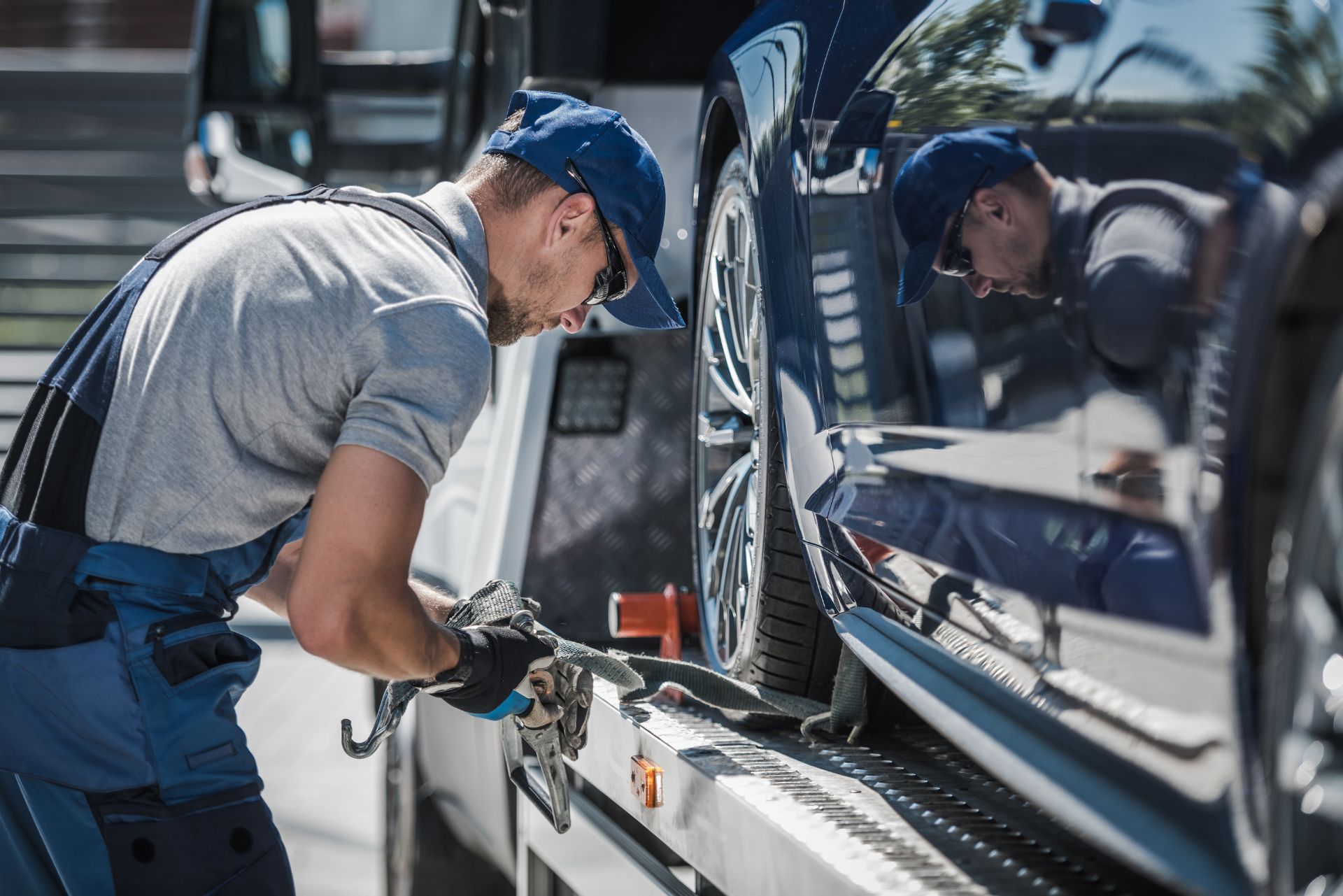Colorado Towing Company Insurance

8:30am - 5:00pm Mon-Fri
We'll Reply in 15min*
Index
Why Insurance is Crucial for Towing Companies in Colorado
Types of Insurance Coverage Needed for Colorado Towing Companies
Factors Influencing Insurance Costs for Towing Companies in Colorado
Legal Requirements for Towing Company Insurance in Colorado
How to Choose the Right Insurance Provider for Your Towing Business
Best Practices for Managing Insurance Claims and Risk
Conclusion: Protecting Your Colorado Towing Business with the Right Insurance
Contact Us
Phone
303-421-5123
Location
9035 Wadsworth Parkway
Suite 2730B
Westminster, CO 80021
Running a towing company in Colorado comes with unique challenges and responsibilities, especially when it comes to insurance. The towing industry is a vital part of the automotive ecosystem, contributing significantly to the economy and public safety. With Colorado’s towing sector projected to generate $244.1 million in revenue by 2025, understanding the nuances of insurance coverage is essential for operators to protect their business, assets, and clients effectively. This comprehensive guide will walk you through everything you need to know about insurance for towing companies in Colorado, from mandatory policies to best practices.
For a deeper dive into industry trends and financial insights, the
IBISWorld report on Colorado’s towing industry offers valuable data that highlights the growth and economic impact of this sector.
Why Insurance is Crucial for Towing Companies in Colorado
Towing companies operate in a high-risk environment. From roadside assistance to vehicle recovery, the nature of the work exposes operators to liability risks, potential property damage, and bodily injury claims. Insurance is not just a regulatory requirement but a critical safety net that helps businesses navigate these risks.
Colorado towing companies must comply with state regulations that mandate certain types of insurance coverage. Beyond compliance, having comprehensive insurance builds trust with customers and partners, ensuring that any mishaps during towing operations are adequately covered.
Moreover, the towing industry in the U.S. is valued at approximately $8 billion annually, underscoring the scale and importance of robust insurance frameworks to safeguard this economic sector. For more detailed statistics on the industry’s economic contributions, the Gitnux Report 2024 provides extensive insights.
In addition to liability coverage, towing companies in Colorado often benefit from specialized insurance policies tailored to their unique operational needs. For instance, on-hook insurance protects against damage to vehicles while they are being towed, which is particularly important given the high value of many vehicles on the road today. Furthermore, garage liability insurance can cover incidents that occur while vehicles are in the company’s possession, providing an extra layer of protection against potential claims.
Insurance also plays a pivotal role in employee safety and training. Many towing companies invest in comprehensive training programs for their drivers, focusing on safe towing practices and emergency response protocols. By ensuring that their employees are well-trained and adequately insured, these companies not only protect their workforce but also enhance their overall operational efficiency. This proactive approach can lead to lower
insurance premiums over time, creating a win-win situation for both the company and its employees.

Types of Insurance Coverage Needed for Colorado Towing Companies
1. Commercial Auto Insurance
Commercial auto insurance is the backbone of any towing company’s insurance portfolio. It covers liability and physical damage for tow trucks and other vehicles used in the business. Given that the average age of tow trucks in the industry is around 7 years, maintaining adequate coverage for aging fleets is essential to mitigate repair and replacement costs.
This insurance typically includes coverage for accidents, theft, and damage caused during towing operations. Since the average towing fee for a standard vehicle in the U.S. is around $100, with regional variations, protecting each tow economically safeguards the company’s revenue stream. Additionally, with the increasing number of vehicles on the road, the likelihood of accidents has risen, making it even more critical for towing companies to have robust commercial auto insurance. This not only ensures compliance with state regulations but also provides peace of mind to operators who face unpredictable road conditions and emergencies daily.
2. Garage Liability Insurance
Garage liability insurance protects towing companies against claims arising from property damage or bodily injury that occur on their premises. This is particularly important for businesses that operate vehicle storage lots or repair facilities. It covers incidents such as damage to a customer’s vehicle while in the company’s care. Furthermore, the nature of towing operations often involves high foot traffic, with customers frequently visiting to retrieve their vehicles. This increases the risk of accidents occurring on-site, making comprehensive garage liability coverage indispensable for safeguarding the business against potential lawsuits.
3. Garagekeepers Insurance
Garagekeepers insurance is a specialized policy that covers damage to vehicles stored on the company’s lot due to fire, theft, vandalism, or weather-related events. This coverage is critical for towing companies that hold vehicles for extended periods, ensuring financial protection against unforeseen losses. In Colorado, where severe weather can lead to hailstorms and heavy snowfall, having garagekeepers insurance can be particularly beneficial. This policy not only protects the company's assets but also helps maintain customer trust, as clients are more likely to choose a towing service that demonstrates a commitment to safeguarding their vehicles.
4. General Liability Insurance
General liability insurance covers third-party claims for bodily injury and property damage that occur during business operations but are not related to vehicle use. This can include slip-and-fall accidents at the company’s office or damage caused during non-towing activities. In addition, it can protect against claims arising from advertising injuries, such as defamation or copyright infringement, which can occur in marketing materials. For towing companies that often engage with the public, having general liability insurance is essential to protect against the financial fallout from unexpected incidents that could otherwise jeopardize the business's reputation and financial stability.
5. Workers’ Compensation Insurance
Given the physical demands and hazards of towing work,
workers’ compensation insurance is vital. It provides coverage for medical expenses and lost wages if an employee is injured on the job. With tow truck operators earning between $30,000 and $60,000 annually, this insurance helps protect both employees and employers from financial hardship. The towing profession can be particularly dangerous, with risks ranging from heavy lifting to exposure to traffic hazards. By investing in workers’ compensation insurance, towing companies not only comply with state laws but also demonstrate their commitment to employee safety and well-being, which can enhance morale and reduce turnover rates in a challenging industry.
Factors Influencing Insurance Costs for Towing Companies in Colorado
Insurance premiums for towing companies vary based on several factors, including fleet size, types of services offered, and geographic location. In Colorado, urban areas typically see faster response times—averaging around 30 minutes—which can influence risk assessments and insurance rates. This rapid response capability is crucial, especially in cities like Denver and Colorado Springs, where traffic congestion and weather conditions can complicate towing operations. The ability to respond quickly not only enhances customer satisfaction but also minimizes potential liabilities, which can positively impact insurance costs.
Other key factors include the age and condition of tow trucks, with the industry average lifespan being about 7 years before replacement. Newer vehicles often attract lower premiums due to improved safety features, while older trucks may increase costs due to higher risk of mechanical failure. Moreover, the maintenance history of each vehicle plays a significant role; well-maintained trucks that undergo regular inspections and repairs are less likely to be involved in accidents, further reducing insurance costs. Insurers may also consider the types of tow trucks in the fleet, as specialized vehicles for heavy-duty towing may carry different risk profiles compared to standard light-duty trucks.
Additionally, the towing industry’s projected annual growth rate of 2.4% over the next five years signals a competitive market where companies must balance operational costs with comprehensive insurance coverage to remain viable. As more towing companies enter the market, the competition can drive prices down, but it also means that companies must be diligent in maintaining their safety records and customer service standards. Furthermore, the rise of technology in the towing industry, such as GPS tracking and mobile apps for dispatching, is not only improving efficiency but also providing insurers with more data to assess risk accurately. Companies that leverage these technologies may find themselves in a better position to negotiate favorable insurance terms.
Legal Requirements for Towing Company Insurance in Colorado
Colorado law mandates specific insurance requirements for commercial towing operations. At a minimum, towing companies must carry commercial auto liability insurance to cover damages or injuries resulting from their operations. The state also requires proof of financial responsibility, which can be satisfied through insurance or other means.
Failure to meet these requirements can result in fines, license suspension, or legal action. Therefore, it’s crucial for towing companies to stay updated on state regulations and maintain valid insurance policies at all times.
In addition to commercial auto liability insurance, towing companies may also consider additional coverage options to protect their operations. For instance, on-hook coverage is essential for businesses that transport vehicles, as it provides protection against damage to vehicles while they are being towed. Furthermore, garage liability insurance can cover incidents that occur on the towing company's premises, such as accidents involving customer vehicles. By investing in comprehensive insurance packages, towing companies can safeguard themselves against a range of potential liabilities and ensure smoother operations.
For a comprehensive overview of the industry’s insurance standards and regulatory environment, the
ZipDo Education Reports 2025 provide valuable guidance tailored to towing businesses. These reports not only outline the legal requirements but also delve into best practices for risk management and insurance selection, helping towing operators make informed decisions that align with their specific business needs. Understanding these nuances can significantly enhance a towing company's resilience in a competitive market.

How to Choose the Right Insurance Provider for Your Towing Business
Selecting the right insurance provider involves evaluating coverage options, customer service, and cost-effectiveness. Tow companies should seek insurers with experience in the towing industry, as they better understand the unique risks and operational challenges involved. A provider familiar with the intricacies of towing, such as roadside assistance, vehicle recovery, and equipment protection, can tailor policies that specifically address the needs of your business.
Comparing quotes and coverage details from multiple providers is essential. Pay attention to policy limits, deductibles, and exclusions to ensure the coverage aligns with your business needs. Additionally, consider providers that offer bundled packages combining commercial auto, liability, and workers’ compensation insurance for streamlined management and potential cost savings. Bundling can not only simplify your insurance management but also lead to discounts that can significantly reduce your overall expenses.
Moreover, it’s crucial to assess the claims process of potential insurers. A provider with a reputation for efficient claims handling can save you time and stress when you need it most. Look for reviews and testimonials from other towing businesses to gauge their experiences with claims. Additionally, inquire about the availability of 24/7 support, as towing operations often run around the clock and having access to assistance at any hour can be invaluable. Understanding how quickly an insurer can respond to claims and the level of support they provide during the process can be a deciding factor in choosing the right partner for your business.
Lastly, don’t overlook the importance of building a relationship with your insurance agent. A knowledgeable agent who understands the nuances of your towing business can provide ongoing advice and adjust your coverage as your business grows or changes. Regular check-ins can ensure that your policy remains relevant and comprehensive, protecting your assets and operations effectively. Engaging in discussions about risk management strategies can also help you minimize potential liabilities, further safeguarding your business in the long run.
Best Practices for Managing Insurance Claims and Risk
Efficient claims management can significantly impact a towing company’s financial health. Establishing clear protocols for reporting incidents, documenting damages, and communicating with insurance adjusters helps expedite the claims process. This structured approach not only streamlines operations but also fosters a culture of accountability among employees, ensuring that everyone understands their role in the claims process. By utilizing digital tools for documentation, such as mobile apps that allow for real-time reporting and photo uploads, towing companies can enhance the accuracy of their claims and reduce the time spent on paperwork.
Investing in regular training for tow truck operators to follow safety procedures reduces the likelihood of accidents and claims. Since over 80% of towing companies in the U.S. reported increased demand during the COVID-19 pandemic, maintaining operational safety standards amid higher workloads is more important than ever. Implementing comprehensive training programs that cover not only driving skills but also customer service and emergency response can lead to a more professional workforce. Additionally, incorporating scenario-based training can prepare operators for unexpected situations, ultimately leading to safer operations and improved client satisfaction.
Implementing preventive maintenance for tow trucks, considering their average lifespan of 7 years, also minimizes breakdowns and costly repairs, indirectly supporting lower insurance premiums. Regular inspections and servicing can identify potential issues before they escalate, ensuring that vehicles remain in optimal condition. Furthermore, keeping detailed maintenance records can provide valuable documentation that may be beneficial when negotiating insurance terms or filing claims. By prioritizing vehicle upkeep, towing companies not only enhance their operational efficiency but also build a reputation for reliability that can attract more clients.
In addition to these practices, fostering strong relationships with insurance providers can lead to better coverage options and more favorable terms. Regularly reviewing and updating insurance policies to reflect the current needs and risks of the business is essential. Engaging in discussions with insurance agents about potential discounts for safety measures or training programs can yield significant savings. Furthermore, participating in industry associations or groups can provide insights into emerging trends in risk management and claims handling, allowing towing companies to stay ahead of the curve and adapt their strategies accordingly.
Conclusion: Protecting Your Colorado Towing Business with the Right Insurance
Insurance is a fundamental component of running a successful towing company in Colorado. From commercial auto policies to workers’ compensation, the right coverage safeguards your business against the inherent risks of towing operations. With the industry contributing over $10 billion annually to the U.S. economy and continuing to grow, investing in comprehensive insurance is not just prudent but essential.
By understanding legal requirements, evaluating coverage options, and adopting best practices for risk management, Colorado towing companies can ensure long-term stability and customer trust. For ongoing insights into industry trends and insurance developments, staying connected with resources like the
Gitnux Report 2024 will keep your business informed and prepared.




